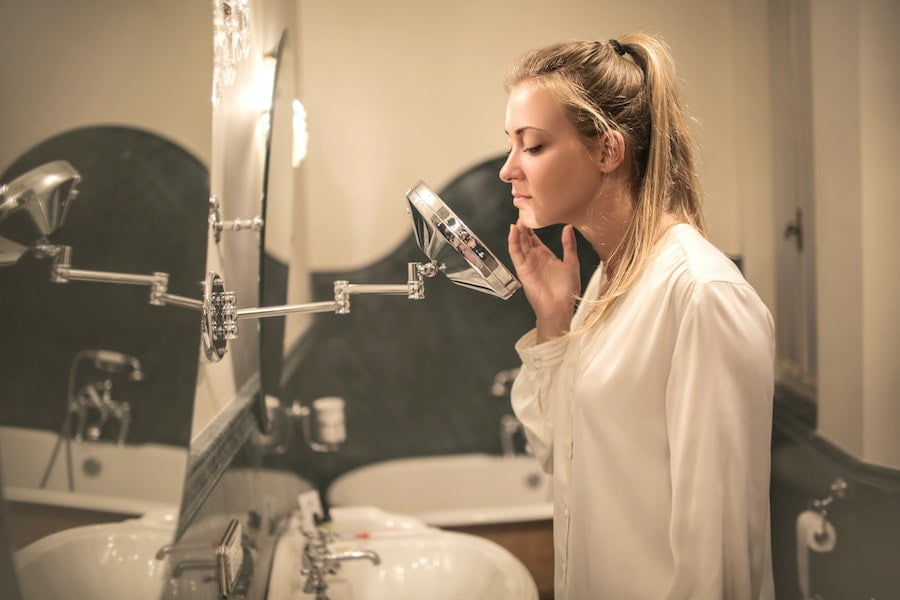Are you one of the many people who are surprised to learn that they are allergic to makeup? If so, you’re not alone. Many people are surprised to learn that they are allergic to makeup.
Makeup allergies are relatively common and can cause a range of symptoms from mild to severe. If you suspect you may be allergic to makeup, it’s important to see a doctor for proper diagnosis and treatment.
There are a few wellness tips you can do to avoid an allergic reaction to makeup. First, pay attention to the ingredients in your makeup and look for products that are hypoallergenic and non-comedogenic. Second, always test new products on a small area of skin before using them all over your face. And third, be sure to cleanse your face thoroughly every night to remove all traces of makeup.
What is an allergy

When your body comes in contact with a foreign substance, it’s natural for your immune system to go into overdrive to protect you. For some people, this reaction is exaggerated and leads to an allergy. An allergy is when your body reacts to a normally harmless substance — like pollen, pet dander, or makeup — as if it’s dangerous. Your immune system produces antibodies that release chemicals, like histamine, into your bloodstream.
These chemicals cause the symptoms of an allergic reaction, which can range from annoying (a runny nose) to life-threatening (trouble breathing). There are two types of makeup allergies: contact dermatitis and photoallergic dermatitis. Contact dermatitis is the most common type of allergic reaction to makeup.
Types of allergic to makeup
When it comes to makeup, there are different types of reactions that can occur. For example, some people may be allergic to the ingredients in makeup. This can cause a reaction such as redness, swelling, or itchiness. Other people may not be allergic to the ingredients in makeup, but they may still have a reaction to it. This is because some people’s skin is sensitive to certain ingredients in makeup. Makeup can also cause irritation if it is not removed properly.
There are different types of allergic reactions that can occur when wearing makeup. The most common type of reaction is contact dermatitis, which is when the skin comes into contact with an irritant or allergen and becomes red, itchy, and inflamed.
Another type of reaction is called photoallergic dermatitis, which is when the skin comes into contact with a substance that causes an allergic reaction when exposed to sunlight. This type of reaction can be more difficult to identify because the symptoms may not appear until several hours after exposure to the sun. If you suspect that you may have a photoallergic reaction, it is important to see a doctor so that you can be properly diagnosed and treated.
Allergens in makeup
There are a number of common allergens found in makeup that can cause allergic reactions. These include parabens, formaldehyde, fragrance, and preservatives. If you have an allergy to any of these ingredients, it is important to check the label of any makeup products before using them.
There are a number of common allergens found in makeup that can cause allergic reactions. These include:
– Fragrances: Many makeup products contain fragrances, which can cause allergic reactions in some people.
– Parabens: These are commonly used as preservatives in makeup and can cause skin irritation or contact dermatitis.
– Phthalates: These chemicals are used to make cosmetics more flexible and can also lead to skin irritation.
If you have an allergy to any of these ingredients, it’s important to check the labels of all makeup products before using them. Additionally, it’s a good idea to do a patch test on a small area of skin before using a new product.
How to avoid a reaction
When it comes to makeup, there are certain ingredients that can trigger an allergic reaction. If you have sensitive skin, it’s important to be aware of the potential for an allergic reaction and take steps to avoid it. Here are some tips to help you avoid a reaction:
1. Know your triggers. If you have sensitive skin, you may be more likely to have a reaction to certain ingredients in makeup. Be sure to read the labels carefully and avoid products that contain your triggers.
2. Do a patch test. Before using a new makeup product, always do a patch test first. Apply a small amount of the product to an inconspicuous area of skin and wait 24 hours to see if there is any redness or irritation.
3. Use hypoallergenic products.
A lot of people don’t realize that they’re allergic to makeup until they experience a reaction. Makeup allergies are more common than you might think, and they can cause a range of symptoms from mild irritation to severe swelling and redness. If you suspect you might be allergic to makeup, it’s important to see a doctor so you can get a proper diagnosis and find out which ingredients you need to avoid.
In the meantime, there are some simple precautions you can take to minimize your risk of an allergic reaction. Start by reading the ingredient labels on all of your makeup products. If you see any potential allergens listed, stop using the product immediately. You can also try switching to hypoallergenic or natural makeup brands that are less likely to contain allergens.

